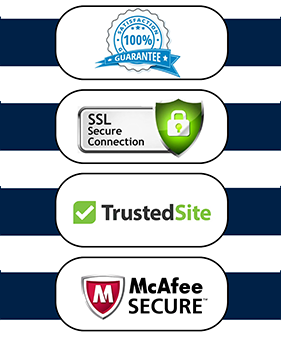
AHIMA RHIA Exam Dumps
- Exam Name: Registered Health Information Administrator
- Certification Name: AHIMA RHIA Certification
- Exam Code: RHIA
- Total Questions Provided: 1828
- Last Updated: Apr 10, 2025




Navigating the AHIMA RHIA Exam: Your Path to Success
Unleashing the Power of Data and Information Governance
As an aspiring Registered Health Information Administrator (RHIA), you'll need to demonstrate a strong grasp of data and information governance principles. This includes understanding the policies, procedures, and standards that ensure the integrity, security, and accessibility of healthcare data. You'll need to be well-versed in data management techniques, data quality assurance, and the application of information governance frameworks.
Ensuring Compliance with Health Information Access, Use, and Disclosure
The AHIMA RHIA exam will assess your expertise in navigating the complex landscape of healthcare information compliance. You'll need to showcase your knowledge of privacy and security regulations, such as HIPAA, and your ability to implement robust access controls, data protection measures, and disclosure protocols. Demonstrating your proficiency in managing the life cycle of health information will be crucial.
Harnessing the Power of Data Analytics and Informatics
As an RHIA, you'll be expected to leverage data analytics and informatics to drive informed decision-making in healthcare organizations. This means understanding data mining techniques, statistical analysis, and the application of health information systems. You'll need to demonstrate your ability to transform raw data into actionable insights that can improve patient outcomes and optimize healthcare operations.
Mastering Revenue Cycle Management
The AHIMA RHIA exam will assess your proficiency in revenue cycle management, which is a critical aspect of healthcare administration. You'll need to showcase your understanding of coding, billing, and reimbursement processes, as well as your ability to ensure accurate and compliant documentation and reporting.
Demonstrating Management and Leadership Acumen
The RHIA credential not only requires technical expertise but also strong management and leadership skills. You'll need to demonstrate your ability to effectively manage health information departments, lead teams, and implement strategic initiatives that align with organizational goals. This includes understanding principles of change management, project management, and human resource management.
Unlocking the Career Benefits of the AHIMA RHIA Certification
Earning the RHIA certification can open doors to a wide range of career opportunities in the healthcare industry. As an RHIA, you may find yourself in roles such as Health Information Manager, Clinical Data Analyst, Compliance Officer, or Revenue Cycle Director. The RHIA credential is highly valued by employers, as it demonstrates your comprehensive understanding of healthcare information management and your ability to contribute to the optimization of patient care and organizational performance.

Currently there are no comments in this discussion, be the first to comment!